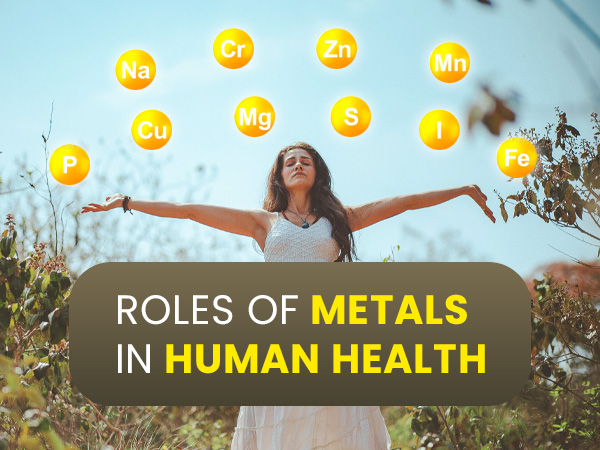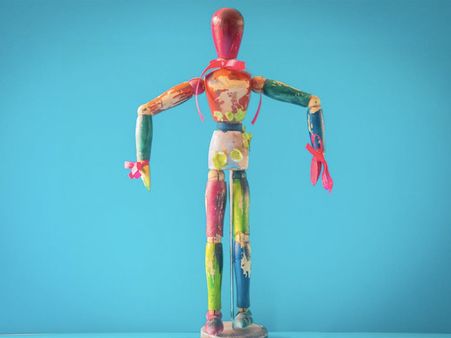Just In
- 11 min ago

- 5 hrs ago

- 8 hrs ago

- 12 hrs ago

Don't Miss
- Sports
 UFC 302: Makhachev vs. Poirier Date, Card, Broadcast & Ticket Details
UFC 302: Makhachev vs. Poirier Date, Card, Broadcast & Ticket Details - Movies
 Salman Khan Is All Set To Start The Shooting For His Upcoming Movie 'Sikandar', All The Details We Know So Far
Salman Khan Is All Set To Start The Shooting For His Upcoming Movie 'Sikandar', All The Details We Know So Far - Finance
 Wipro Q4 Results Preview: Weak Demand Likely To Drag Revenue Sequentially, EBIT Margins Seen Stable
Wipro Q4 Results Preview: Weak Demand Likely To Drag Revenue Sequentially, EBIT Margins Seen Stable - News
 BRS Chief K Chandrasekhar Rao Slams BJP, Says K Kavitha's Arrest Is Vendetta Politics
BRS Chief K Chandrasekhar Rao Slams BJP, Says K Kavitha's Arrest Is Vendetta Politics - Automobiles
 Aprilia RS 457 Accessories: A Detailed Look At The Prices
Aprilia RS 457 Accessories: A Detailed Look At The Prices - Education
 Karnataka SSLC Result 2024 Soon, Know How to Check Through Website, SMS and Digilocker
Karnataka SSLC Result 2024 Soon, Know How to Check Through Website, SMS and Digilocker - Technology
 Nothing Ear, Ear a With ANC, Up to 42.5 Hours of Battery Launched; Check Price and Availability
Nothing Ear, Ear a With ANC, Up to 42.5 Hours of Battery Launched; Check Price and Availability - Travel
Telangana's Waterfall: A Serene Escape Into Nature's Marvels
Essential Metals And Their Role In Human Health
Metals play a vital role in our lives. They help in several critical biological functions and their scarcity may lead us to a long list of diseases. Metals are also used in designing drugs to treating conditions such as arthritis, cancer and ulcer.

Some essential metals for humans include sodium, magnesium, potassium, calcium, manganese, vanadium, iron, copper, zinc, cadmium, cobalt and molybdenum. Though these metals provide many health benefits, they can be toxic when consumed in an excess amount. Also, some heavy metal ions like lead and mercury can cause toxicity even in small amounts. [1]
In this article, we will discuss the roles metals play in human health. Take a look.


What Are The Essential Metals For Our Body?
According to a study, 98 per cent of our body is made of nine nonmetallic elements. It includes four main electrolytes: sodium, potassium, calcium and magnesium that constitute about 1.89 per cent of the total elements, while the rest 0.02 per cent is made up of 11 trace elements. [2]
Though trace metals are present in very small amounts, they have tremendous roles in maintaining the functions of our body.
Essential metals for the human body include:
- Organic basic elements: Hydrogen, Nitrogen, Carbon and Oxygen
- Quality elements: Sodium, potassium, magnesium, calcium, phosphorus, sulphur and chlorine.
- Trace elements: Manganese, iron, copper, nickel, zinc, molybdenum and selenium.
- Other functional metals: lithium, chromium, vanadium, boron, silicon, fluorine and arsenic.
- They act as a catalyst or cofactor for many enzymes and help in the biochemical reactions which are crucial for our body.
- They help in building stabilising structures of proteins and enzymes.
- They support the body in preventing deficiency of metals which is related to the development of various diseases.
- Some elements donate or accept electrons to reduce the number of free radicals in the body and thus, prevent damage due to oxidative stress. [3]
- They help in the generation of metabolic energy and its utilisation by the body.
- They help control important biological functions like the formation of DNA, metabolic functions and release of certain hormones. [4]

Why Does Human Body Require Metals?
Some of the essential functions of metals for the human body include:


Some Important Metals And Their Functions
1. Iron
It is required by our body for the production of red blood cells and to prevent related diseases like anaemia. [5] Iron is also present in haemoglobin and is responsible for the red colour of the blood. It is also required for the growth, development, synthesis of hormones, development of connective tissues and normal cellular functioning.
The recommended daily amount (RDA) for iron in normal healthy adults is 8 mg/day for men and post-menopausal women, and 18 mg/day for menstruating women.
2. Copper
The human body requires copper for the proper functioning of the brain and the heart. Copper also helps increase the number of white blood cells, promote muscle strength, maintain the functioning of the nerves and boost gastrointestinal health. [6]
The RDA for copper in normal healthy adults is 2 mg/day.
3. Zinc
This metal is found in the entire body, especially in the muscle tissues. It leads to the proper growth and development of the body and benefits skin health. Zinc also acts as a cofactor for enzymes which help in cell growth, cell division and metabolism of proteins, lipids, carbohydrates and energy. [7]
The RDA for Zn is 8 mg/day for women and 11 mg/day for men.

4. Calcium
Calcium is primarily important for bone health, along with lowering blood pressure, lowering cholesterol levels, reducing hypertensive disorders of pregnancy and preventing colorectal diseases. [8]
The RDA for calcium is 1000 mg to 1300 mg for people over 19 years of age.
5. Sodium
Sodium helps maintain the normal cellular homeostasis and regulation of fluid and electrolytes in the body. This helps maintain the blood pressure, functioning of muscles and nerve cells, and transportation of nutrients to various body parts. [9]
For all individuals aged 9-50 years, the RDA of sodium is 1500-2300 mg/day.
6. Potassium
It is important for the catalytic activity of the RNA and is required for homeostasis in the cell. Potassium is a vital metal for the reduction of stroke and chronic kidney diseases. It also has a positive effect on bone health. [10]
The RDA for potassium is in the range of 1.6 to 5.9 g/d.

7. Vanadium
Vanadium is essential for the vertebrates of humans. It is involved in phosphate metabolism, enhancing the functionality of insulin and controlling diseases caused by viruses, bacteria and protozoa. Vanadium also plays an important role in medicinal applications that include manufacturing of the cancer-based drug. [11]
The RDA of vanadium is 10 mg/ kg body mass.

Other Metals Which Are Good For Human Health
8.
Nickel:
It
is
required
for
improving
hormonal
functions
and
lipid
metabolism.
High
amounts
of
nickel
can
cause
adverse
effects
to
the
body.
[12]
9.
Chromium:
It
is
involved
in
the
reduction
of
glucose
tolerance
and
metabolism
of
carbohydrates,
proteins
and
lipids.
[13]
10.
Magnesium:
It
acts
as
a
cofactor
for
more
than
300
enzymes
that
are
involved
in
the
functioning
of
muscle,
glycemic
control,
blood
pressure
and
neuromuscular
conduction.
[14]
11.
Phosphorus:
It
helps
to
regulate
gene
transcript,
activate
enzymes,
buffer
blood,
formation
of
bone
and
teeth,
repair
of
cells
and
metabolism
of
fats
and
carbohydrates.
12.
Sulphur:
It
helps
in
building
DNA,
fixing
their
damage
and
protecting
the
cells.
Sulphur
is
good
for
the
health
of
the
skin,
ligaments
and
tendons.
13.
Manganese:
It
is
essential
for
energy
metabolism,
functioning
of
reproductive
hormones,
protection
of
cells,
boosting
immune
functions
and
activation
of
certain
metalloenzymes.
[15]
14.
Molybdenum:
This
vital
metal
ion
is
required
for
the
three
mammalian
enzymes
xanthine
oxidase
(XO),
aldehyde
oxidase
(AO),
and
sulfite
oxidase
(SO).
Its
efficiency
can
cause
mental
health
problems
and
tachycardia.
[16]

To Conclude
Metals benefit the human body only when consumed in recommended amounts. Plants, vegetables, seeds, nuts and other food items are packed with the aforementioned vital metals. Consume them to get their benefits.
Toxicity due to these metals mainly develop when they are consumed in high amounts in the form of supplements or exposed to these metals through various sources like chemical industries, fungicides, electrical equipment, metal-processing and wastewater discharges.
Avoid exposure by taking preventive measures and consult a medical expert before starting on their supplements.
-
 wellnessDo You Know The Benefits Of Eating In Metal Utensils?
wellnessDo You Know The Benefits Of Eating In Metal Utensils? -
 wellnessBenefits Of Eating In Silver Vessels!
wellnessBenefits Of Eating In Silver Vessels! -
 nutritionHow To Flush Out Heavy Metals From Your Body
nutritionHow To Flush Out Heavy Metals From Your Body -
 disorders cureCell Phones And iPods May Cause Allergies
disorders cureCell Phones And iPods May Cause Allergies -
 fashionWorld Environment Day: 8 Tips To Embrace Sustainable Fashion
fashionWorld Environment Day: 8 Tips To Embrace Sustainable Fashion -
 insyncInternational Plastic Bag Free Day 2023: Is ‘Manjappai' Cloth Bag An Apt Alternative For Plastic Bags?
insyncInternational Plastic Bag Free Day 2023: Is ‘Manjappai' Cloth Bag An Apt Alternative For Plastic Bags? -
 insyncConverting Seaweed Into Paper: This Green Warrior's Holiday In Goa Turned Out To Be A Goldmine
insyncConverting Seaweed Into Paper: This Green Warrior's Holiday In Goa Turned Out To Be A Goldmine -
 astrologyWorld Environment Day 2023: Plant Tree According to Your Zodiac Sign
astrologyWorld Environment Day 2023: Plant Tree According to Your Zodiac Sign -
 pulseHow Cartoonists Are Tackling Climate Change Through Webcomics
pulseHow Cartoonists Are Tackling Climate Change Through Webcomics -
 lifeEarth Day 2022: Amazing Quotes And Wishes To Honour The Day
lifeEarth Day 2022: Amazing Quotes And Wishes To Honour The Day -
 wellness18 Green Tips To Improve Your Health And Lifestyle
wellness18 Green Tips To Improve Your Health And Lifestyle -
 wellnessWorld Environment Day 2021: 13 Daily Habits That Are Slowly Killing The Environment & What You Can Do About It
wellnessWorld Environment Day 2021: 13 Daily Habits That Are Slowly Killing The Environment & What You Can Do About It


 Click it and Unblock the Notifications
Click it and Unblock the Notifications



